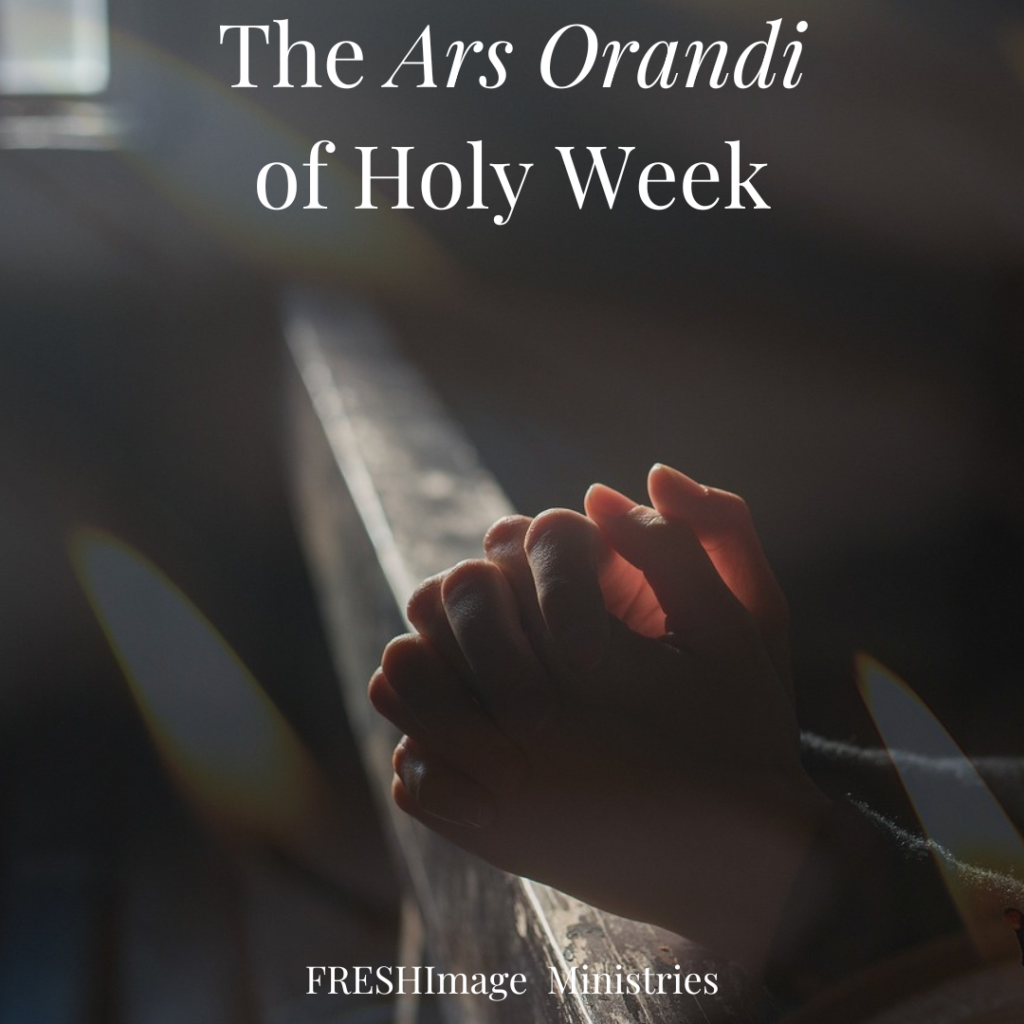
As we rapidly approach Holy Week, we enter the Triduum—the great culmination of Lent, the most sacred time for the faithful and the magnificent summit of the Church’s liturgical life. The principal liturgies of this time are exceptionally rich in content and symbolic expression, conveying the most essential tenets of our faith. During these solemn days, the Church invites us to unite with Christ in the most direct manner, accompanying Him step by step on His most difficult journey: His Passion, death, and ultimate triumph in the glorious Resurrection.
Through meditation on the Church’s ars orandi—its art of prayer—we can nurture our faith and draw inspiration from the unique forms of worship associated with Holy Week. A striking example of this is found in two hymns, Vexilla Regis and Pange Lingua, composed by Saint Venantius Fortunatus.
Born in Italy, Fortunatus relocated in adulthood to the northern city of Metz (now in France) to seek a position at the Merovingian court. Having earned a reputation as a highly respected poet, he later moved to Poitiers, in present-day southern France, where he was ordained and eventually became bishop. As both a poet and an ecclesiastical figure, he developed a close friendship with Radegund, a Thuringian princess and Frankish queen, who founded the Abbey of the Holy Cross in Poitiers. When she received an extraordinary gift from the Byzantine Emperor Justin II—a large relic of the True Cross—Fortunatus composed two hymns, Vexilla Regis and Pange Lingua, for the solemn ceremony of its reception. Both hymns were sung in the grand procession as the relic was carried into the monastery, and both were later incorporated into the liturgies of Holy Week.
The term vexilla refers to a military standard or banner, and in this context, it signifies the royal ensigns of Christ: the Cross, the scourge, the lance, and the other instruments of His Passion, with which He waged battle against the prince of darkness. In certain interpretations of the hymn, Vexilla Regis is also seen as evoking the sacraments of Baptism and the Eucharist.
ABROAD the regal banners fly,
now shines the Cross’s mystery:
upon it Life did death endure,
and yet by death did life procure.
Behold! The nails with anguish fierce,
His outstretched arms and vitals pierce:
Here our redemption to obtain,
The Mighty Sacrifice is slain.
Who, wounded with a direful spear,
did purposely to wash us clear
from stain of sin, pour out a flood
of precious water mixed with blood.
That which the prophet-king of old
hath in mysterious verse foretold,
is now accomplished, whilst we see
God ruling the nations from a Tree.
O lovely and refulgent Tree,
adorned with purpled majesty;
culled from a worthy stock, to bear
those limbs which sanctified were.
Blest Tree, whose happy branches bore
the wealth that did the world restore;
the beam that did that Body weigh
which raised up Hell’s expected prey
Hail wondrous Altar! Victim hail! (O CRUX AVE)
Thy Glorious Passion shall avail!
Where death Life’s very Self endured,
Yet life by that same Death secured.
Hail Cross, of hopes the most sublime!
Now, in the mournful Passion time; *
grant to the just increase of grace,
and every sinner’s crimes efface.
Blest Trinity, salvation’s spring
may every soul Thy praises sing;
to those Thou grantest conquest by
the Holy Cross, rewards supply. Amen.
Many Catholics readily recognize the phrase Pange Lingua Gloriosi as the opening of the Eucharistic hymn written by St. Thomas Aquinas, which is sung on Corpus Christi and at the conclusion of the Holy Thursday liturgy. However, few are aware that this is not the only Pange Lingua hymn. The earlier Pange Lingua, composed by Fortunatus, is centered on the Holy Cross and is now an integral part of the official prayers of Good Friday. Its concluding section, Crux Fidelis (“The Faithful Cross”), has served as a source of inspiration for countless musicians over the centuries, and compositions based on its text continue to be written to this day.
FAITHFUL Cross! above all other,
one and only noble Tree!
None in foliage, none in blossom,
none in fruit thy peers may be;
sweetest wood and sweetest iron!
Sweetest Weight is hung on thee!
Lofty tree, bend down thy branches,
to embrace thy sacred load;
oh, relax the native tension
of that all too rigid wood;
gently, gently bear the members
of thy dying King and God.
Tree, which solely wast found worthy
the world’s Victim to sustain.
harbor from the raging tempest!
ark, that saved the world again!
Tree, with sacred blood anointed
of the Lamb for sinners slain.
Blessing, honor, everlasting,
to the immortal Deity;
to the Father, Son, and Spirit,
equal praises ever be;
glory through the earth and heaven
to Trinity in Unity. Amen.
Dr. Andrzej Zahorski

Andrzej Zahorski is Director of Music at St. Anselm Parish in St. Louis, MO. He holds a doctorate of musical arts from Stanford University.